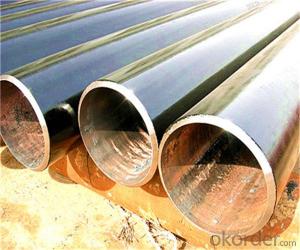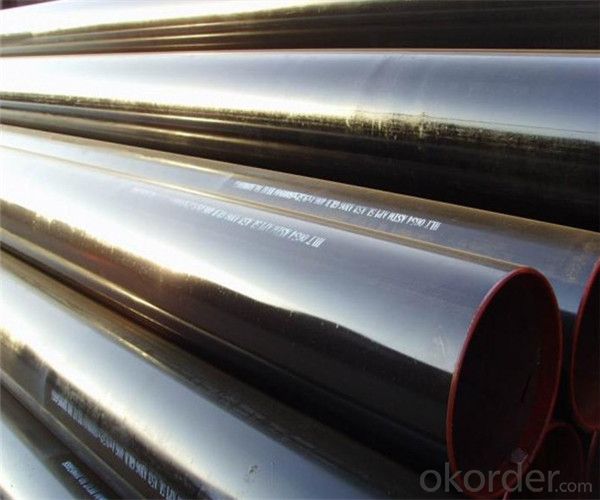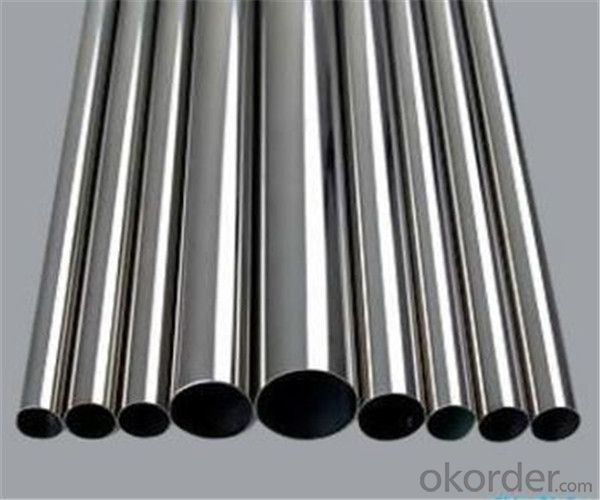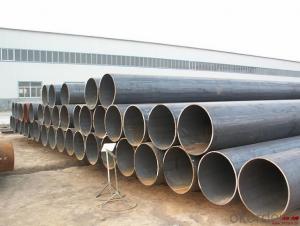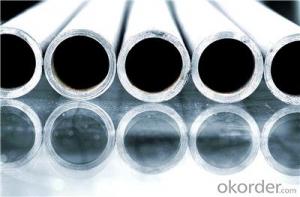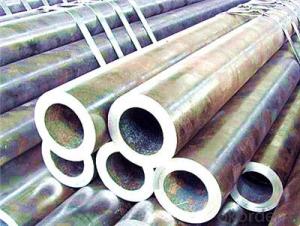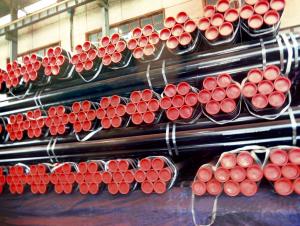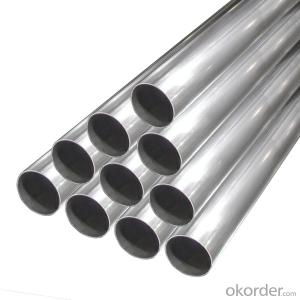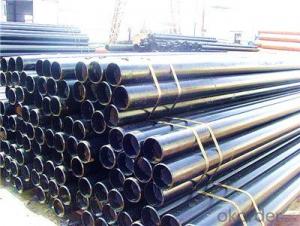Seamless Steel Pipe with Best Price and High Quality/Hot Selling
- Loading Port:
- Tianjin
- Payment Terms:
- TT OR LC
- Min Order Qty:
- 50 m.t.
- Supply Capability:
- 2000000 m.t./month
OKorder Service Pledge
OKorder Financial Service
You Might Also Like
PRODUCT DETAILS
1.Structure of Seamless Steel Pipe Description:
A large amount of Seamless Steel Pipes is offered to the clients at cost effective rates. These pipes are extremely durable, resistant to corrosion and have high tensile strength. Our pipes are used in nuclear plants, power plants, refineries and construction industry across the country. Furthermore, we are capable of providing these seamless pipes to the clients in bulk quantity.
2.Product pictures
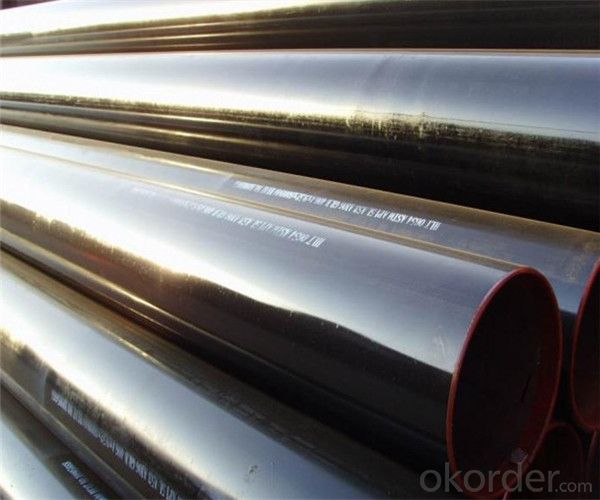
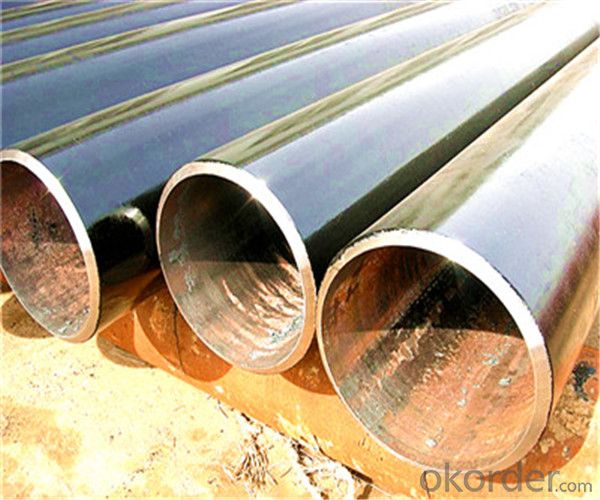
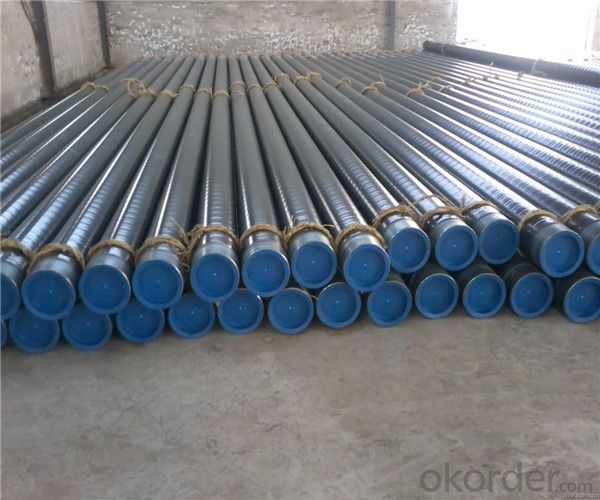
3.Packaging & Delivery:
| Packaging Details: | Seaworthy packages, bundles wrapped with strong steel strip |
| Delivery Detail: | 15-30 days after received 30% TT |
4.Seamless Steel Pipe Specification:
| Standard: | GB, DIN, ASTM,ASME, ASTM A106-2006, ASTM A53-2007 |
| Grade: | 10#,20#, 45#, 16Mn |
Thickness: | 8 - 33 mm |
| Section Shape: | Round |
| Outer Diameter: | 133 - 219 mm |
| Place of Origin: | Shandong, China (Mainland) |
| Secondary Or Not: | Non-secondary |
| Application: | Hydraulic Pipe |
| Technique: | Cold Drawn |
| Certification: | API |
| Surface Treatment: | factory state or painted black |
| Special Pipe: | API Pipe |
| Alloy Or Not: | Non-alloy |
| Length: | 5-12M |
| Outer Diameter: | 21.3-610mm |
5.FAQ of Seamless steel pipe:
①How is the quality of your products?
Our products are manufactured strictly according to national and internaional standard, and we take a test
on every pipe before delivered out. If you want see our quality certifications and all kinds of testing report, please just ask us for it.
Guaranteed: If products’ quality don’t accord to discription as we give or the promise before you place order, we promise 100% refund.
②How about price?
Yes, we are factory and be able to give you lowest price below market one, and we have a policy that “ for saving time and absolutely honest business attitude, we quote as lowest as possible for any customer, and discount can be given according to quantity”,if you like bargain and factory price is not low enough as you think, just don’t waste your time.Please trust the quotation we would give you, it is professional one.
③Why should you chose us?
Chose happens because of quality, then price, We can give you both.Additionally, we can also offer professional products inquiry, products knowledge train(for agents), smooth goods delivery, exellent customer solution proposals.Our service formula: good quality+good price+good service=customer’s trust.
SGS test is available, customer inspection before shipping is welcome, third party inspection is no problem.
Any question, pls feel free to contact us !
- Q: Can steel pipes be used for telecommunications cables?
- No, steel pipes cannot be used for telecommunications cables. Telecommunications cables typically require materials with high electrical conductivity and insulation properties, such as copper or fiber optics. Steel pipes are not suitable for transmitting signals and would interfere with the transmission of data.
- Q: Can steel pipes be used for structural applications?
- Yes, steel pipes can be used for structural applications.
- Q: What are the different methods of pipe insulation for steel pipes?
- Various methods can be employed to insulate steel pipes, each offering distinct advantages and suitability for specific applications. Some commonly utilized techniques encompass: 1. Fiberglass insulation: Esteemed as a highly favored pipe insulation method, fiberglass insulation comprises fine glass fibers and is obtainable in diverse formats like rolls, sheets, or pre-formed sections. It boasts a lightweight nature, effortless installation, and exceptional thermal insulation attributes. 2. Foam insulation: Another efficacious means of insulating steel pipes is foam insulation, which can be procured in various forms including rigid foam boards or spray foam. It is renowned for its high insulating capacity and its ability to seal gaps and cracks, thereby enhancing energy efficiency. 3. Rubber insulation: Rubber insulation, also referred to as elastomeric insulation, is extensively employed in HVAC systems to insulate steel pipes. It possesses flexibility, durability, and resistance to moisture, making it suitable for both indoor and outdoor applications. Additionally, rubber insulation offers commendable thermal and acoustic insulation properties. 4. Polyethylene insulation: Polyethylene insulation presents a cost-effective alternative for insulating steel pipes. It can be found in diverse formats such as foam tubes or molded sections and is effortless to install. Polyethylene insulation provides commendable thermal insulation, safeguards against condensation, and exhibits resistance to water vapor diffusion. 5. Cellular glass insulation: Cellular glass insulation, a rigid insulation material produced from crushed glass and a foaming agent, is acknowledged for its exceptional thermal insulation attributes as well as its resistance to moisture, fire, and chemicals. It is commonly employed in cryogenic and high-temperature applications. When selecting the appropriate pipe insulation method for steel pipes, it is imperative to consider factors such as temperature, moisture conditions, and project-specific requirements. Seeking guidance from a professional or insulation expert can aid in determining the optimal insulation method based on the specific needs and conditions of the project.
- Q: What are the industries that commonly use steel pipes?
- Some of the industries that commonly use steel pipes include oil and gas, construction, manufacturing, automotive, infrastructure, water treatment, and plumbing.
- Q: How are steel pipes used in wastewater treatment plants?
- Steel pipes are used in wastewater treatment plants for various purposes such as transporting wastewater, carrying chemicals and additives, and supporting the infrastructure.
- Q: What is the impact of temperature on steel pipes?
- The impact of temperature on steel pipes can vary depending on the specific conditions and application. Generally, high temperatures can cause steel pipes to expand, potentially leading to buckling or distortion. On the other hand, extremely low temperatures can make steel pipes more brittle and prone to cracking. It is crucial to consider the temperature range within which the steel pipes will operate to ensure their structural integrity and prevent any potential failures.
- Q: How are steel pipes used in the manufacturing of furniture and appliances?
- Steel pipes are commonly used in the manufacturing of furniture and appliances for various purposes. They are used as structural components to provide stability and support, especially in items like chairs, tables, and bed frames. Steel pipes are also used as frames or frames within frames for cabinets, shelves, and storage units, offering durability and strength to hold heavy objects. Additionally, steel pipes can be used as handles or legs for appliances, ensuring stability and easy mobility. Overall, steel pipes play a crucial role in enhancing the strength, stability, and functionality of furniture and appliances in the manufacturing process.
- Q: Are steel pipes fire resistant?
- Yes, steel pipes are fire resistant. Steel is a non-combustible material, meaning it does not catch fire or contribute to the spread of flames. Steel pipes have a high melting point and are able to withstand extreme temperatures, making them suitable for use in applications where fire resistance is required. Additionally, steel is a durable material that does not degrade or lose its structural integrity when exposed to fire. This makes steel pipes a common choice for fire protection systems, such as sprinkler systems in buildings, as well as for industrial applications where fire hazards are present.
- Q: Can steel pipes be used for underground compressed air pipelines?
- Indeed, underground compressed air pipelines can utilize steel pipes. The strength and durability of steel pipes make them a popular choice for subterranean pipelines. They possess the capacity to endure high pressure and withstand corrosion and other environmental elements. Moreover, steel pipes are renowned for their extended lifespan, rendering them a dependable option for compressed air pipelines. Nevertheless, it is crucial to guarantee the adequate coating and protection of the steel pipes to avert any potential corrosion concerns. Furthermore, the proper installation and maintenance of these pipelines are vital to ensure their efficiency and safety.
- Q: What quota is reserved for buried DN20 steel pipe?
- If it is reserved for embedded pipe pre buried steel waterproof casing, set of waterproof casing steel production and installation is to set the quota items, if the outdoor installation of welded steel pipe buried steel casing pre quota items, if it is a reserved hole, then there is no need to set the quota items.
Send your message to us
Seamless Steel Pipe with Best Price and High Quality/Hot Selling
- Loading Port:
- Tianjin
- Payment Terms:
- TT OR LC
- Min Order Qty:
- 50 m.t.
- Supply Capability:
- 2000000 m.t./month
OKorder Service Pledge
OKorder Financial Service
Similar products
Hot products
Hot Searches
Related keywords
